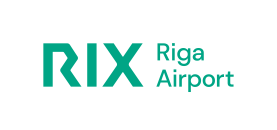Riga Airport Joins EASA COVID-19 Prevention Charter
Riga Airport has joined the European Union Aviation Safety Agency (EASA) Charter to help prevent the spread of COVID-19, demonstrating that the company is ready to work according to the highest aviation epidemiological safety standards and to cooperate on the national and international level to reduce the risks of spreading the disease.
The EASA Charter, which has currently been signed by 22 European airports and airport operators, includes not only the certification of the members’ ability to ensure the highest epidemiological safety standards, but also provides for mutual cooperation and information exchange to improve the joint measures and standards in the industry aimed at ensuring maximum safety and protection of passengers during the global pandemic.
Chairperson of the Board of Riga Airport, Laila Odiņa, emphasises: “Passenger safety and health is our utmost priority. Since the beginning of the pandemic, Riga Airport has invested a lot of effort in improving both passenger and aircraft service processes, as well as the airport’s infrastructure, in order to reduce the risks of spreading the disease to a minimum. By joining the EASA Charter, the airport demonstrates its readiness to act and cooperate with others in order to ensure that air travel is as safe as possible and our passengers are protected.”
Joining the Charter is a testimony to the fact that the epidemiological safety programme #NeļaujVīrusamCeļot (Forbid the virus from travelling) introduced at Riga Airport in May corresponds to the EASA-ECDC Aviation Health Safety Protocol. The document contains the scientifically grounded guidelines designed by EASA and the European Centre for Disease Prevention and Control (ECDC) for airports and airlines regarding the introduction of measures for reducing COVID-19 risks in order to ensure unified and concerted action in the entire European aviation industry.
The Charter also provides for weekly information and data exchanges between the members of the Charter and EASA. By analysing the information provided on the increase of passenger flow intensity and the incidence and spread of the disease, EASA is going to evaluate the efficacy of the measures introduced and, if necessary, will be able to respond to the current situation fast, thus enhancing overall travel safety in Europe.
By now, the EASA Charter has been signed by more than 40 European airports and airlines. More information about the Charter and its signatories is available on the EASA website.
Like we have already said, the airport programme #NeļaujVīrusamCeļot provides for a set of measures in different directions of action for the protection and safety of the airport and the employees of the companies working at the airport, as well as safe passenger service, in order to prevent the spread of COVID-19 as much as possible. Meanwhile, in accordance with the EASA-ECDC guidelines, while at the airport, passengers are required to wear a medical mask and passengers are provided with the opportunity to observe more vigilant hand hygiene and physical distancing wherever possible.
Employee protection measures have also been implemented, and additional cleaning and disinfection measures are taken at the airport.
Before arriving at Riga Airport, passengers are encouraged to get acquainted with the safety measures on the airport’s website and carefully read the safety requirements of their chosen airline. For example, the national airline airBaltic does not let passengers with a body temperature of over 37.8°C to board their aircrafts. The temperature is taken before security checks.
The airport also encourages potential travellers to find out in advance of their trip what entry requirements and restrictions the destination country has in place.
The airport reminds incoming passengers: If the traveller has arrived in Latvia from a country where the cumulative 14-day COVID-19 incidence number exceeds 15, they must observe mandatory 14-day self-solation. The list of countries is available on the Latvian Centre for Disease Prevention and Control (SPKC) website.


